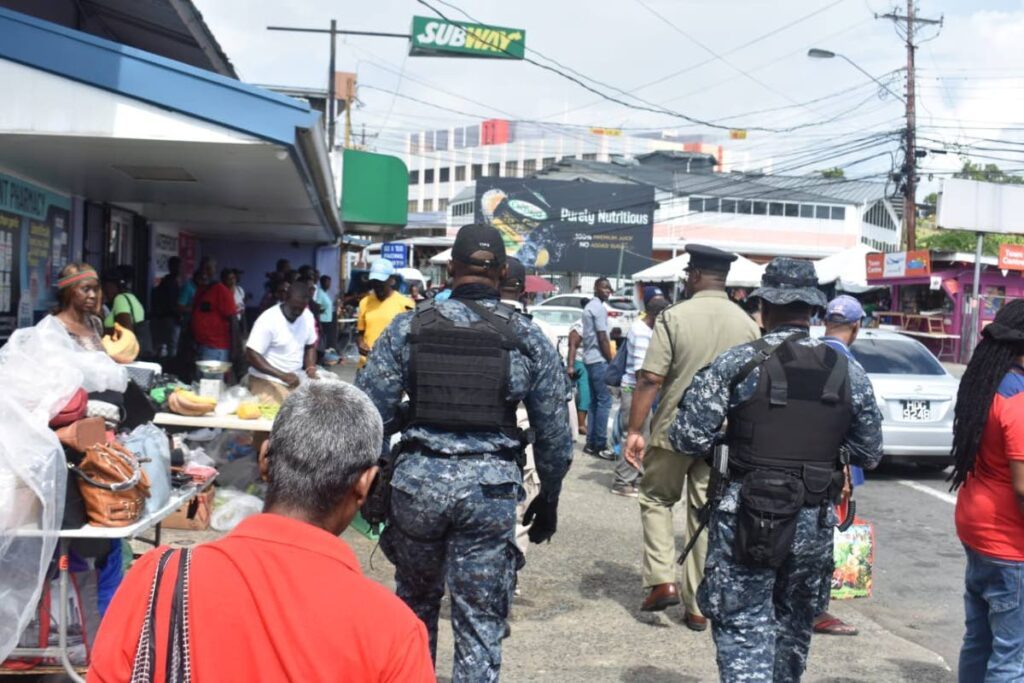Former ACP offers advice on dealing with Tobago's gang culture

A RETIRED Assistant Commissioner of Police (ACP) believes a lack of ambition and the absence of a passion for learning among Tobagonian males are contributing to Tobago’s spiralling gang culture.
In an interview with Newsday on February 6, William Nurse, a Tobagonian, responded to Chief Secretary Farley Augustine’s recent revelation that there were at least 28 criminal gangs on the island.
Moving a motion on security at a plenary sitting, Assembly Legislature, Scarborough, on January 23, Augustine read from a USAID report, which he said was presented to his office by former US ambassador to TT Candace Bond in 2024.
The report, he told the House, showed that from just three gangs in 2009, Tobago now has 28, an increase that exceeds even Port of Spain, which, the study revealed, saw a significant reduction in gangs over the same period.
Augustine said, “When we had 24 gangs on record according to the study, Port-of-Spain had 41, but in 2022, when we had 28, Port-of-Spain was reported as having just 21, meaning that their trajectory is going downwards over the last couple of years.”
He added, “If you look at North Eastern Tobago for most of the years, we’ve had a higher number of gangs than divisions like North Eastern, Eastern, Southwestern and Southern. We only trend lower than Western and Port-of-Spain for most of those years.”
Augustine said the concern was not just the increase in gangs but also the widening number of regions they control.
Nurse, who was one of six people screened by the Tobago People's Party on February 6 for the Tobago East seat in the upcoming general election, believes the USAID report has merit.
He recalled there was a study done by the Centre for Criminology at UWI, St Augustine, several years ago, which was later presented at a workshop at the Magdalena Grand Beach & Golf Resort, Lowlands.
“I participated in that seminar and what the presentation revealed was that there were about 27 gangs existing in Tobago. So the study was done and it’s there,” Nurse said.
Saying that most of the gangs operate in villages such as Les Coteaux and Golden Lane, Nurse offered a few theories for the proliferation.
“It is simple. The young Tobagonian male has turned away from academics, has turned away from learning and everybody wants an early morning work. And that’s enough for them. There is no motivation to acquire.
“Children are willing to sell their books for a gun and a host of other things. Tobagonians are no longer the kind of industrious people that they once used to be. So the males are not learning and they are not succeeding in enough numbers to make a difference.”
Asked how the disturbing trend could be reversed, Nurse said, “It has to start with the younger children, the younger generation and their parents. How do you get their parents to buy in to a directional change.”
He believes too many single mothers are parenting young boys.
“Fathers have to step up and partner with the mothers. There are too many mothers raising boys by themselves.”
Parents, social media to blame
BMEN Foundation president Michael Stewart, who has been running a polishing camp for at-risk boys in Canaan, Tobago, for several years, said poor parenting is partly to blame for the increase in gangs.
“I would look seriously at parenting because what opportunity do our children have to become part of gangs? And why are gangs an integral part of the lives of the children?” he asked.
“I don’t think we should put 100 per cent blame on the government nor 100 per cent blame on the police. We need to take a serious look at it.”
Stewart referred to Snr Supt Earl Elie’s revelation at a security stakeholders meeting on January 9 that children as young as 12 years old were becoming involved in gangs in Tobago.
“That is a serious situation where 12-year-olds are now part of gangs.”

Saying that children are bombarded with images of gun-related violence on television and social media, Stewart believes the media has a role to play in stemming the situation.
Alluding to a study, Stewart told Newsday the average child views about 3,000 different types of violent acts and gunplay just by watching the television.
“When you are finished watching the news at eight o’clock in the night and shows come on where parental guidance is required owing to the graphic content, I am saying that the media has a responsibility to recognise to not air such violent shows.
“But who has the temerity and the will to make that stop and put it later in the night when children should be in bed? That is causing children 12 years old and younger to be exposed. But with Facebook, YouTube and other social media platforms the average child has easy access to social media, which also carry a number of violent and unsavory shows and pictures that people have access to.”
Regarding social media access, Stewart said, “Parents need to take responsibility because there are security measures that parents can take to block their children from having to use their devices to access certain places. But the parents themselves are very ignorant as to what those measures are because some of them are not tech-savvy.”
He said the USAID study, which said there were 28 gangs in Tobago, is cause for concern.
“My position is that it is alarming that in this little island of Tobago where everybody knows everybody, we have 28 gangs. You could always tell when someone is not from Tobago. So the question is, ‘Are these known people in Tobago or are they people who came from somewhere else?’
“Part of the problem, I believe, is that we have not been paying attention. So if there is going to be a serious locking down of gangs and criminality in Trinidad, it is to be expected that they will migrate to less secure places. And obviously, Tobago is the next place that we would have had. So while it is alarming, the question is, should it even be surprising?”
Stewart said the authorities also have to take some responsibility for the lax security at ports of entry.
At the polishing camp, which has been in existence for about eight years, Stewart said the boys are trained in life skills, anger management, conflict resolution and etiquette as it relates to dress code, table manners and deportment.
While the project has positively impacted the lives of several young men over the years, Stewart said it has not received much support from governmental organisations and private entities.
He lamented what he believes is the lack of support for at-risk boys in the country, generally.
Stewart said the boys who desperately need the camp cannot afford to come to it.
He said the camp, which currently has about 15 youngsters, is usually held during the July-August vacation but the intention is to have it on Saturdays so that they can still attend during the normal school period.

Comments
"Former ACP offers advice on dealing with Tobago’s gang culture"